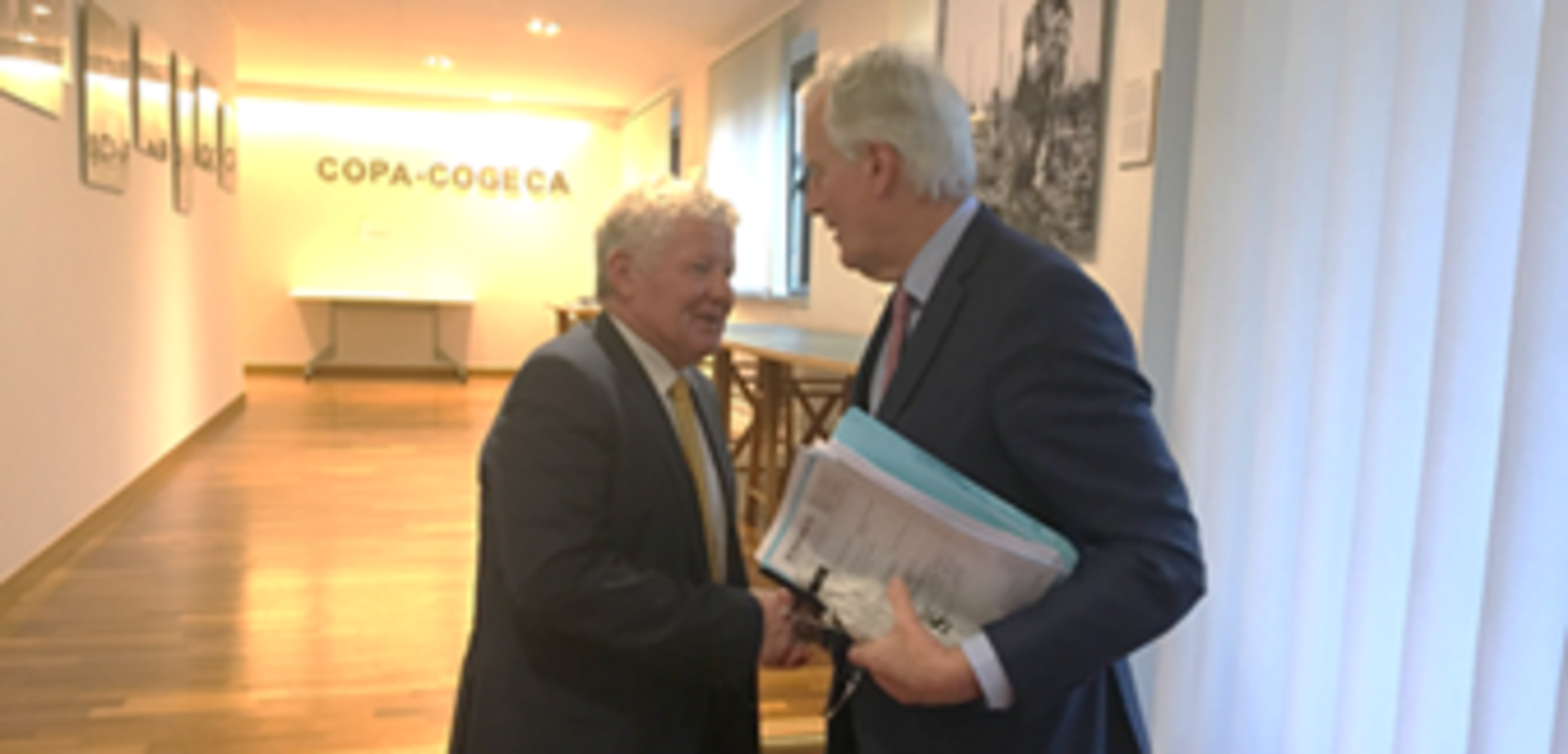ICOS meeting with EU Brexit Negotiator Barnier Ahead of Phase One Breakthrough

The European Commission and the UK Government have reached an agreement in principle on phase one of the Brexit negotiations, with Commission President Jean-Claude Juncker stating that “sufficient progress” has been made on the three “exit” issues, paving the way for trade talks to begin in the new year.
Compromise wording relating to the Northern Irish-Irish border led to the breakthrough in discussions. The negotiated report states the relationship between Northern Ireland and the Republic of Ireland should be governed by the future EU-UK trading partnership. In the event there is no agreement, the UK will “propose specific solutions to address the unique circumstances of the island of Ireland” or “maintain full alignment” with single market and customs union rules. The establishment of this default position will go a long way towards easing fears on the possibility of a cliff-edge scenario (of a hard border and WTO rules) should the discussions breakdown.
The clear contradictions in the UK’s desired outcome remain however. Within the document it is stressed that the UK will be leaving the single market and customs union, however it also commits to a “guarantee” on avoiding a hard border” on the Island of Ireland, while at the same time ensuring “the same unfettered access for Northern Ireland’s businesses to the whole of the United Kingdom internal market”.
There has been debate over how binding this agreement is, with David Davis stating on Sunday 10 December, that it is a mere statement of intent, rather than legally binding. While the agreement is not formally binding however (as it is part of the overall Article 50 exit agreement and therefore must be formally ratified by the EU institutions once the entire negotiation process is complete), it is a political agreement with the EU underlining that trade discussions can only begin if all the commitments are respected in full and translated into legal terms as quickly as possible.
Speaking to the EU Chief Negotiator Michel Barnier the week before, Copa Cogeca Brexit Chair, Alo Duffy (ICOS/Lakeland Dairies) emphasized that transitional arrangements, which maintain the status quo, must also be agreed as soon as possible in order to fully remove the uncertainty facing farmers and co-operatives. He also called for an agreement to be reached which preserves the investments that have been made by the farming community on both sides of the Irish border.
The agreement on phase one must be formally approved by EU-27 member states at the European Council Summit later this week (14/15 December). The EU has already begun its internal preparations for the transitional arrangements, and will also now need to agree to new negotiation guidelines to instruct Michel Barnier on how to proceed.
Alison Graham
European Affairs Executive